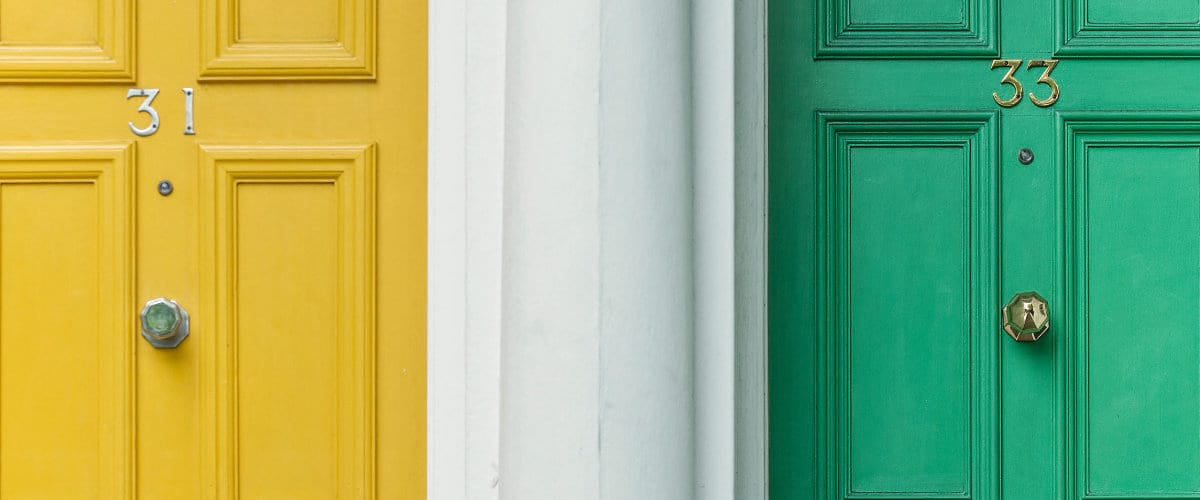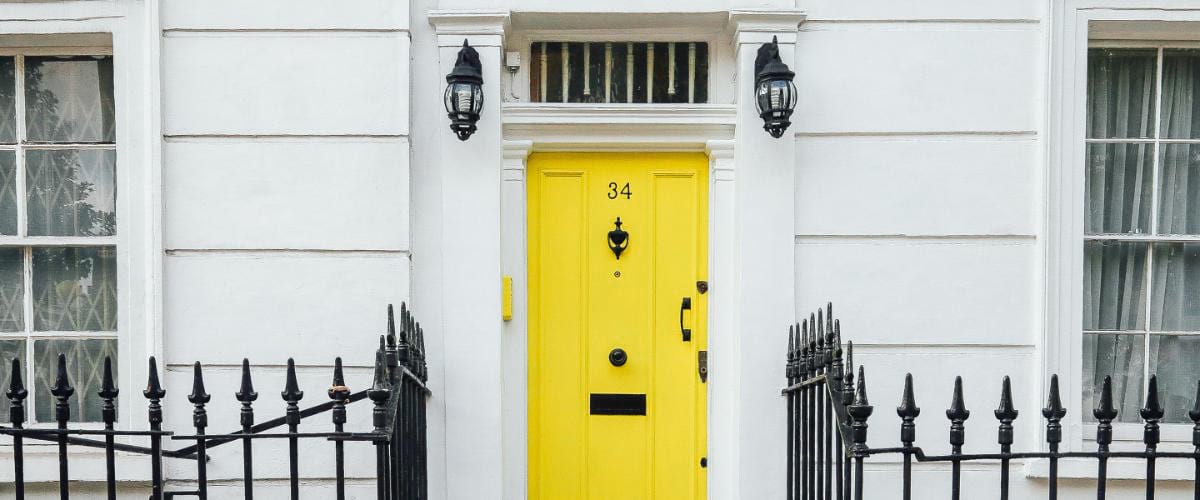Review all home insurance providers
quickly

Compare important policy information in
one place
Buy the right home insurance policy
for you
Find the right
insurance for you
Whether you have a small or large property, you own or rent, it’s essential that your home and contents are insured.
Top Rated Providers
Our comparison table is ordered by review score. The review score is the average weighted score based on product quality and user reviews from the last 12 months. Find out more about how our review score is calculated.
All home insurance quotes are provided via Quotezone, who are FCA regulated.
Please note that some of the providers included within our table are not currently offering new policies.
In this Guide
-
Things to consider when comparing home insurance
-
Is home insurance compulsory?
-
Valuing your buildings insurance
-
Valuing your contents insurance
- What should I include in home insurance?
-
How much does the best home insurance cost?
-
Common exclusions
A Complete Guide to Buying Home Insurance
Whether you have a small or large property, you own or rent, it’s essential that your home and contents are insured. Worryingly, a large percentage of homeowners in the UK don’t have a home insurance policy in place, leaving them open to much greater risk and expenditure in the long run.
When buying a home or moving into a home, you must ask yourself, what if my home and contents were ruined by a flood? What if there was a fire? Would I be able to pay for the repairs and replacement of my property? It’s not just damage you need to worry about, if you were the victim of a burglary, would you be able to cover the losses financially? More often than not, the answer would be no, meaning that having the correct home insurance policy is vital in safeguarding you financially.
Deciding on home insurance is easy with our quoting tool, but you also need to know what type of home insurance to get. There are two types of home insurance currently on the market. Buildings insurance, which covers damage to the fabric of your property, including fixtures and fittings and contents insurance, which covers your belongings. All insurers offer these separately or together. This guide will discuss if home insurance is compulsory, detail how to value your buildings and contents insurance and highlight who the best home insurance providers are.
- Contents insurance - Insurance that covers items that aren’t a part of the home fixture. These can be furniture, electronics, art, bicycles and more.
- Buildings insurance - Covers any damage to the structure of the house. It should be able to cover all the costs of rebuilding your home if necessary.
Compare by Review is dedicated to helping you receive the best house insurance for the best price. You can relax knowing you aren’t at risk of losing money over your house and belongings if there is theft or accidental damage.
The Thing to Consider When Comparing Home Insurance
Rather than focusing on finding the cheapest home insurance policy you can, we encourage you to compare house insurance based on the level and type of cover that insurers provide. When comparing house insurance policies, you need to thoroughly check what you are and aren’t covered for. Don’t assume that everything is covered as standard; some elements of house insurance are optional extras, and you’ll need to pay a higher premium to benefit from additional cover.
Additional extras can include:
-
Accidental damage cover – additional cover for unintentional, one-off events such as spilling paint on a carpet or breaking a window.
-
Alternative accommodation cover – provides you with somewhere else to live temporarily if your home needs repair work.
-
Personal belongings cover – covers you for items you take outside the house like gadgets, phones and jewellery.
-
Home emergency cover – covers home emergencies such as a broken boiler, electrical failure or blocked drains.
-
Legal expenses – covers the cost of legal issues, such as costs for property disputes and faulty services.
-
Bicycle cover – you can get additional cover for your bicycle, both at home or away from the home.
The best home insurance policies offer the above additional extras so you can tailor your policy to your personal needs and get the level of cover you need.
Is Home Insurance Compulsory?
Whilst it’s not a legal requirement to have buildings and contents insurance, it does give you peace of mind that your property and belongings are protected if the worst were to happen. If you’re in the process of buying a home or you have a mortgage, your mortgage provider may insist that you have buildings insurance in place for the duration of your mortgage.
Can a non-owner insure a house?
If you’re renting/not the house owner, you might want to get contents insurance. Your landlord will have buildings insurance that covers the building, but it won’t cover your belongings.
Valuing Your Buildings Insurance
In the event of damage to your home, house insurance covers the rebuild or repair costs. You must bear in mind that the rebuild cost is often cheaper than the current market value of your property if a total rebuild was needed. It’s recommended to review the rebuild cost of your home to make sure the figure is up to date, especially if you extend or renovate your home. You should always make sure that you work out an accurate rebuild cost.
If the valuation is too high, you may end up paying more for cover that you don’t need. In the same instance, if your valuation is too low you could be left paying the shortfall. Some insurers offer an ‘unlimited cover’, which will pay out whatever the cost. Be warned that this cover can work out to be more expensive. It’s often a good idea to check and value your property accurately to make sure you don’t pay for wasted cover.
Valuing Your Contents Insurance
The contents of your home are just as important as the structure. You should cover your property against loss or damage caused by theft, fire, storms, flooding or water leakage as well as natural disasters. It’s imperative that the value of your contents is accurate. On average most families underestimate the value of their contents which, in the event of a claim, can leave them out of pocket.
What should I include in home insurance?
Ideally, you should walk through your home and make an inventory of all possessions such as furniture, carpets and curtains and contents including laptops, phones, jewellery etc. The cost can mount up so it’s also advisable to keep proof of purchase and receipts to make things as simple as possible if you need to make a claim. It’s essential to advise your insurer of any valuable items and any new large purchases to make sure that your policy covers for all items. If you don’t give all the correct and relevant information, it may mean that your insurer refuses to pay out in the event of a claim.
Like all insurance policies, it’s important to read through the policy terms and conditions and look out for clauses such as limits paid out for single items. This can trip some people up who look to cover expensive jewellery or specific equipment such as a camera.
How much does the best home insurance cost?
When compiling our comparison table of the best home insurance providers, we took a look at how much the policies cost so you can order our table on the cheapest contents only quote or the cheapest buildings and contents quote. However, we are founded on the belief that insurance shouldn’t be bought on the cost of the policy. In fact, we don’t even consider cost when calculating our unique CBR score. We value home insurance reviews over price; it’s more important to compare house insurance based on customers' real experiences so you can take out a policy with a provider that cares.
The cost of your policy will vary depending on a variety of factors, including:
- Excess – this is how much you want to pay towards your claim. Generally, the lower the excess, the higher your premium is.
- Contents – you need to accurately value the cost of the contents in your home. The higher the value, the higher your premium will be.
- Locks – some providers ask you to have specific locks to take out a policy.
- Alarms – if you have a security alarm system, you could pay a lower premium for your home insurance, but you need to make sure you use it.
- Rebuild cost – you also need to accurately value the cost of rebuilding your home from scratch. This cost is usually listed on your mortgage valuation and is not the same as your market value.
Common exclusions
There are some occasions when home insurance providers won’t pay out. These include damage due to wear and tear or acts of war or terrorism. In some instances, if your home is unoccupied for more than 30 days it could invalidate your policy. Some people can fall foul of their policy, especially if it doesn’t cover the worth of the property or the contents. It’s essential to be honest and give all information to your provider to make sure you have ample and accurate cover. Simple changes such as not reporting changes, getting a lodger, or having your home renovated can be grounds to invalidate your home insurance. Make sure you are honest and upfront with your provider.
Home Insurance Guides
Check out our insurance guides for more information








